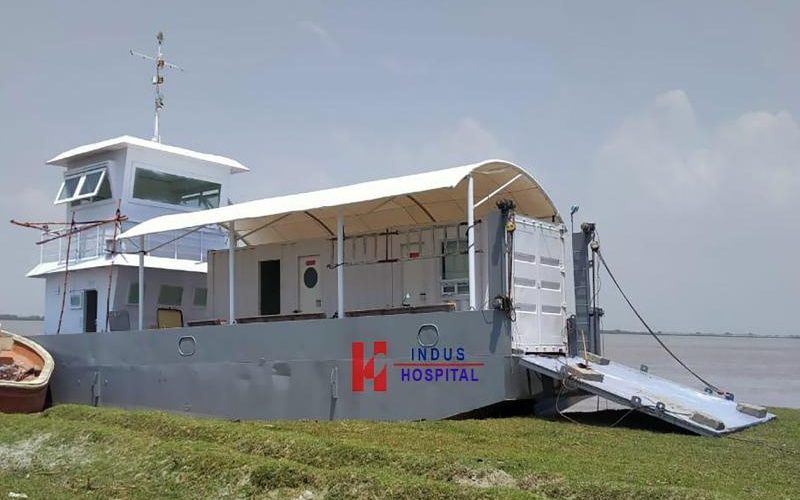FERRYING HOPE ON THE RIVER INDUS
September 7, 2020, Bhong: The Indus Health Network (IHN) is embarking upon a new journey to provide primary care services through the first-ever Boat Clinic in Pakistan. The initiative will serve the vulnerable population in Southern Punjab who is barely touched by development with limited access to any type of health services. The clinic will provide quality screening and primary care services free-of-charge. Patients in need of secondary and tertiary level care will be referred to the IHN partner and referral sites.
The catchment area is home to approximately 105,000 people which is further divided into 47% male, and 53% female population. The inhabitants are marginalized and vulnerable, with bare minimum access to communications. The area gets completely submerged during the floods. In such a scenario, the only way to get healthcare is by boat.
The Boat Clinic services will be soon launched in the coming month with a couple of docking points which will be expanded to its full scope of docking stations by the end of the year. At each docking point, the patients will be registered, screened, and have their vitals assessed before a doctor’s visit. The boat will have a lab collection unit and pharmacy as well. The clinic will be equipped with all the basic necessities. The unique initiative will integrate public health services identified by the community and provide access to immunization, pediatric, nutrition, family planning, breastfeeding, deworming, Hepatitis C, and mental health services.
The Primary Care Program (PCP) was initiated in 2017 under the Indus Health Network’s Global Health Directorate to address a growing need of providing free-of-cost and high-quality care at first-contact for our population. The program integrates family medicine with public health interventions and puts a premium on preventive care through community-based teams linked to each center. The Primary Care Program manages 25 Primary Care facilities across Pakistan. These facilities include 12 hospital-based facilities such as the flagship Family Medicine Clinic at the Indus Hospital, Karachi, and others in Badin, Muzaffargarh, Multan, and Lahore. It also operates 12 standalone clinics in the districts of Tharparkar, Jamshoro, Muzaffargarh, Kashmir, Rahimyar Khan, and Karachi. The Clinics are also functional in Jahangir Siddiqui Hospital, Sehwan, Khorwah Chowk, Islamkot Hospital, and A&M Memorial Hospital, Kashmir.




